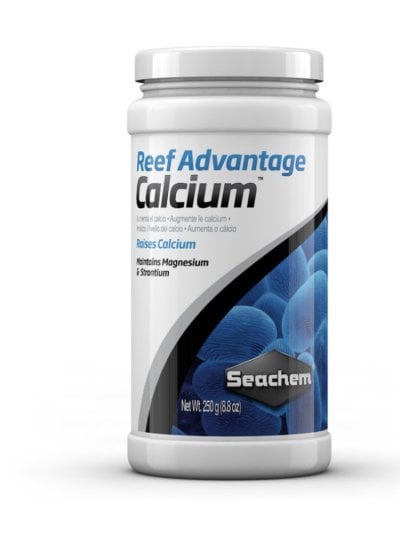Randy Holmes-Farley
Reef Chemist
View Badges

Staff member
Super Moderator
Excellence Award
Expert Contributor
Article Contributor
R2R Research
My Tank Thread
OK, this thread has been many years in the making, and I'm posting it here since folks in the chem forum are probably already tired of all the threads relating to problematic magnesium testing.
I'm going to propose a method, let's call it the Randy Magnesium Method, or RMM for short. All good methods need a catchy name.
Here it is.
1. NEVER measure magnesium. If it comes free from an ICP, sure, take a look. It's probably fine anyway. Don't buy or use a kit. Chances are the results are not very reliable, and most of the time, if there is a value out of the range of acceptable, it is more likely an error of some sort than a real result.
2. Use a decent salt mix at a decent salinity that has a starting level of magnesium and calcium that you like. If you cannot find one, it is easy to add a fixed amount of magnesium to a salt mix. I did that for many years, and rarely measured the tank itself.
3. ANY time that you add calcium, add 5-10% as much magnesium (so for 10 ppm calcium, add 0.5 - 1 ppm magnesium). If coralline is the main user of alk in your tank, use the 10%, if corals are, use 5%. A lot of products, like commercial two parts, AFR, CaCO3/CO2 reactors with suitable media, and my DIY two part systems all add magnesium for you, without measurement.
4. It will take a very long time for any sort of significant deviation to show, and if you also do water changes, it likely never will.
To some this will sound like a joke, but I think many reefers, especially newer reefers, would be better served by RMM than testing and retesting, dosing and redosing and then getting a new kit and testing again. Just a few minutes ago I finished a thread where a kit change gave a 200 ppm difference in magnesium.
Just say no. Exact magnesium levels are just not that important.
I'm going to propose a method, let's call it the Randy Magnesium Method, or RMM for short. All good methods need a catchy name.
Here it is.
1. NEVER measure magnesium. If it comes free from an ICP, sure, take a look. It's probably fine anyway. Don't buy or use a kit. Chances are the results are not very reliable, and most of the time, if there is a value out of the range of acceptable, it is more likely an error of some sort than a real result.
2. Use a decent salt mix at a decent salinity that has a starting level of magnesium and calcium that you like. If you cannot find one, it is easy to add a fixed amount of magnesium to a salt mix. I did that for many years, and rarely measured the tank itself.
3. ANY time that you add calcium, add 5-10% as much magnesium (so for 10 ppm calcium, add 0.5 - 1 ppm magnesium). If coralline is the main user of alk in your tank, use the 10%, if corals are, use 5%. A lot of products, like commercial two parts, AFR, CaCO3/CO2 reactors with suitable media, and my DIY two part systems all add magnesium for you, without measurement.
4. It will take a very long time for any sort of significant deviation to show, and if you also do water changes, it likely never will.
To some this will sound like a joke, but I think many reefers, especially newer reefers, would be better served by RMM than testing and retesting, dosing and redosing and then getting a new kit and testing again. Just a few minutes ago I finished a thread where a kit change gave a 200 ppm difference in magnesium.
Just say no. Exact magnesium levels are just not that important.


















